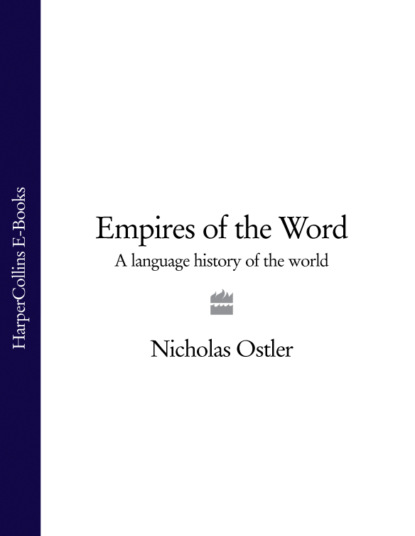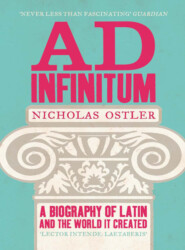По всем вопросам обращайтесь на: info@litportal.ru
(©) 2003-2024.
✖
Empires of the Word: A Language History of the World
Автор
Год написания книги
2019
Настройки чтения
Размер шрифта
Высота строк
Поля
(#litres_trial_promo)
The final decline of Egyptian can be understood as the long-term effect of losing the sense of its own centre.
After the Roman conquest, Egypt was at best a curiosity on the edge of Rome’s Mediterranean world, no longer responsible for its own destiny, but looking hopefully to the west. Four centuries later, the change of focus from Rome to Byzantium had had little impact; Egypt’s identity was sustained by its contributions to the new and growing faith of Christianity. Three centuries later still, the further shock of being incorporated into a quite different alien empire, one that was centred now to its east (in Damascus, then Baghdad), was more than its separate identity could stand. For the first and last time, Egyptian went into decline.
China has always viewed itself as being at the centre of its world, traditionally Tiān Xià, ‘Heaven Below’, encompassed on every side by lesser peoples, inferior in cultivation and morals. The modern word for the country, Zhōng-gŭo, ‘Central Realm’, seems to say it all. But another way of referring to the whole country is Sìhăi zhīněi, ‘Within the Four Seas’, going back at least to Confucius. The Chinese conventionally saw themselves as living in Nine Continents within Four Seas. Each of those seas was seen as the haunt of a barbarian people, the so-called Sìyí, ‘The Four Yi’: Dōng Yí Běi Dí Xī Róng Nán Mán, ‘east the Yi, north the Di, west the Rong, south the Man’. This idea of the steppes that surround China’s heartland as seas, bizarre to anyone who looks at a modern map, had a certain reality when those steppes were populated by pastoral nomads, roaming the grassy plains to prey on the sedentary farmers who lived round the oases, the islands in this ocean. And beyond the Sìyí in the traditional world-view lay the Bāhuāng, ‘the Eight Wastes’, so it is understandable that the traditional Chinese was little tempted to explore farther abroad.* (#litres_trial_promo)
Within this ring of hostiles, the Chinese saw themselves at its centre, with a shared conception of civilised values, and a persistent aspiration to bring willing neighbours into their fold.
There were three features of the Chinese situation that kept their vast community not only centred but also united, socially and linguistically. The first was a fact about their human environment, which quite literally came with the territory that they inhabited. The second was an institution invented quite distinctively by the Chinese, which turned out to be remarkably persistent. And the third was the paradoxical result of the barbarian conquests when they came.
The fact was the periodic influx of hostile marauding nomads, speaking languages radically different to Chinese, and preying on settled Chinese farmers. This had an objective effect on the language, and a subjective effect on Chinese consciousness. Linguistically, the periodic influxes kept the
northern Chinese population on the move, preventing it from settling into distinct dialect areas. But even when, as in the golden ages of the Han and the Tang, the barbarian threat was effecively countered for centuries at a time, the consciousness of barbarians at the gate still remained, naturally causing a greater sense of unity in the population. The external threat of invasion kept the Chinese focused on what they had to lose; and recurrent partial failures of the centre’s defences against it kept the north of China in flux, and so perversely maintained the cohesion of its spoken language.
Вы ознакомились с фрагментом книги.
Приобретайте полный текст книги у нашего партнера:
Приобретайте полный текст книги у нашего партнера:






